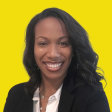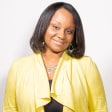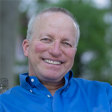Self-development Speakers
You've got a room to fill or a podcast mic waiting, but finding the right voice to inspire personal growth?
That's the tricky part.
You search for a self-development speaker who isn't just repeating the same five tips from a blog post.
You want someone with clarity, energy, and a message that sticks. But where do you start? What makes one self-development speaker stand out from the next?
That's what this guide clears up. Here, you'll find self-development speakers who know how to connect with real people. They've led workshops, spoken on big stages, and helped audiences reflect and move forward.
Some are authors, some are coaches, and some are straight-talking motivators who don't sugarcoat the process.
I've seen how the right self-development speaker can change the tone of an entire event.
Whether you're building a summit, curating a panel, or recording your next podcast episode, this list will help you find someone who fits. Scroll through and see which self-development speakers stand out to you.
Top Self-development Speakers List for 2026
Kimberly Crowe
If it's not fun, it's not worth doing
Alice Van Blokland
Empowering joy, unleashing potential—let's transform together!
Brian Fippinger
Speaker, Best Selling Author, and former Improv Actor who had been coaching leaders for 46 years.
Kaneshi Hart
Transforming first-time managers from chaos to confident leaders
Kareen Aristide
Human Behaviour Expert, Mental Health Specialist & Spiritual Director - Blending Personal Development & Mental Health for Holistic Growth
Ken Sher
Empowering leaders to thrive through trust and authentic connection
Kendall Berg
Empowering professionals to conquer the career game!
Natolie Warren
Therapist & Wellness Expert
Amy Ballantyne
TEDx Speaker & Executive Life Coach
What Makes a Great Self-development Speaker
A great self-development speaker doesn't rely on fluff or recycled quotes. They bring original insights drawn from real transformation-whether it's overcoming adversity, building a business from scratch, or navigating personal reinvention. Think of speakers like Mel Robbins or Jay Shetty. They don't just share tips-they walk you through their mindset shifts, their failures, their wins. That vulnerability builds trust fast.
But it's not just about being relatable. Delivery matters. A great speaker knows how to pace a story, when to pause, when to punch. They use body language with intention. They read the room, even if it's virtual. And they know how to leave the audience with something sticky-a phrase, a challenge, a new lens.
Then there's the ability to adapt. Whether they're speaking to a corporate team in Tokyo or a group of solopreneurs in Toronto, the best self-development speakers tailor their message to the audience's context. They do their homework. They ask questions. They make it feel personal.
In short, a great self-development speaker doesn't just inform-they transform. They don't just speak-they connect. And that's what makes them unforgettable.
How to Select the Best Self-development Speaker for Your Show
1. Define Your Audience's Needs.
- Are they aspiring entrepreneurs? Burned-out professionals? College students looking for direction?
- The more specific you get, the easier it is to match a speaker's message to your listeners' mindset.
2. Identify the Transformation You Want to Deliver.
- Do you want your audience to feel inspired, take action, or rethink their habits?
- For example, if your show focuses on productivity, someone like Nir Eyal might be a fit. If it's about emotional resilience, consider someone like Dr. Thema Bryant.
3. Browse Speaker Platforms Like Talks.co.
- Use filters to narrow down by topic, region, or language.
- Look at speaker pages to watch sample talks, read bios, and check testimonials.
4. Reach Out and Start a Conversation.
- Don't just book based on a reel. Message them to ask how they'd tailor their talk for your show.
- A good speaker will ask questions about your audience before pitching a topic.
5. Check for Alignment Beyond the Stage.
- Do their values align with your brand?
- Are they active in your niche or community?
- Sometimes a lesser-known speaker with deep relevance will outperform a celebrity name.
Selecting the best self-development speaker is about fit, not fame. Prioritize resonance over reach, and your audience will thank you.
How to Book a Self-development Speaker
1. Start with a Shortlist.
- Use platforms like Talks.co to find qualified speakers with relevant experience.
- Look for those who have a speaker page with video samples, topics, and availability.
2. Reach Out with a Clear Pitch.
- Include your show's name, audience size, format (live, recorded, panel, etc.), and what you're looking for.
- Example: "We're a weekly podcast for early-stage founders. We'd love to have you join us for a 30-minute conversation on mindset and motivation."
3. Discuss Logistics Early.
- Confirm the date, time zone, platform (Zoom, Riverside, etc.), and duration.
- Ask about tech needs, preferred format (interview, keynote, Q&A), and any promotional assets they'll need.
4. Set Expectations Around Promotion.
- Will they share the episode with their audience?
- Do you want a short teaser video or quote for social media?
- Clarify this upfront to avoid surprises.
5. Confirm in Writing.
- Send a confirmation email with all agreed details.
- Use a simple agreement if needed, especially for paid gigs.
6. Prep Together.
- Share your audience profile, sample questions, and any themes you want to highlight.
- Great speakers appreciate context-they'll show up stronger when they know who they're speaking to.
Booking a self-development speaker is less about formality and more about clarity. The more you prep upfront, the better the experience for everyone involved.
Common Questions on Self-development Speakers
What is a self-development speaker
Unlike technical experts or industry analysts, self-development speakers focus on the human side of progress. They explore topics like mindset, habits, emotional intelligence, resilience, and purpose. Their content is often rooted in psychology, coaching, or lived experience. Think of speakers like Brendon Burchard or Lisa Nichols-they don't just teach, they guide.
Self-development speakers may speak at conferences, workshops, podcasts, webinars, or virtual summits. Their goal is to spark transformation, not just deliver information. They often blend storytelling with actionable frameworks. For example, a speaker might walk through a five-step process for overcoming procrastination, while weaving in a personal story of how they battled it themselves.
These speakers come from diverse backgrounds-some are former athletes, others are therapists, entrepreneurs, or educators. What unites them is a passion for helping others unlock their potential.
So, when you hear the term 'self-development speaker,' think of someone who's not just talking about change-but helping people create it.
Why is a self-development speaker important
In corporate settings, self-development speakers help teams reframe challenges, build resilience, and reconnect with purpose. For example, after the pandemic, many companies brought in speakers to address burnout and mental health. It wasn't just about boosting morale-it was about rebuilding culture.
In educational spaces, these speakers offer students tools they don't always get in the classroom-like how to manage stress, set goals, or build confidence. A talk from someone like Eric Thomas can light a fire in students that textbooks never could.
For entrepreneurs and creatives, self-development speakers provide clarity in the chaos. Whether it's navigating imposter syndrome or staying motivated during slow seasons, the right speaker can offer both strategy and inspiration.
Ultimately, self-development speakers are important because they help people see what's possible. They don't just offer advice-they offer perspective. And sometimes, that's exactly what someone needs to take the next step.
What do self-development speakers do
First, they research and craft content that addresses personal growth challenges. This could range from building better habits to mastering emotional intelligence. They often draw from psychology, neuroscience, coaching models, or personal experience to create frameworks that resonate.
Second, they deliver this content in engaging formats-keynotes, workshops, webinars, podcasts, or virtual summits. Their delivery is tailored to the audience. For instance, a speaker at a startup accelerator might focus on mindset and resilience, while one at a wellness retreat may lean into mindfulness and self-awareness.
Third, many self-development speakers also coach, write books, or create online courses. Their impact often extends beyond the stage. They build communities, lead group programs, and offer tools for ongoing growth.
Finally, they collaborate with hosts, event planners, and platforms like Talks.co to reach the right audiences. They're not just speakers-they're partners in transformation.
So, while their job title might sound simple, self-development speakers wear many roles: educator, motivator, strategist, and guide. And they do it all with one goal in mind-helping people become better versions of themselves.
How to become a self-development speaker
1. Define Your Core Message.
- What transformation are you helping people achieve? Are you focused on mindset, productivity, resilience, or leadership?
- Tip: Keep your message simple and repeatable. Think of Simon Sinek's 'Start With Why' or Mel Robbins' '5 Second Rule'.
2. Build Your Expertise.
- You don't need a PhD, but you do need real value. This could come from personal experience, coaching clients, or research.
- Start a blog, podcast, or YouTube channel to share insights and build authority.
3. Create Your Signature Talk.
- Structure it around a clear transformation. Use stories, frameworks, and audience engagement techniques.
- Practice it at local meetups, Toastmasters, or virtual summits.
4. Set Up Your Speaker Page.
- Use platforms like Talks.co to showcase your bio, topics, testimonials, and video clips.
- Make it easy for event hosts to see your value and book you.
5. Connect with Hosts and Event Organizers.
- Reach out via LinkedIn, email, or Talks.co's host-guest matching feature.
- Offer to speak at virtual summits, podcasts, or niche conferences first to build momentum.
6. Collect Testimonials and Refine.
- After each talk, ask for feedback and testimonials. Use these to improve and build social proof.
7. Scale Your Reach.
- As you gain traction, pitch larger events, create online courses, or write a book to expand your impact.
Start small, stay consistent, and focus on delivering transformation, not just inspiration.
What do you need to be a self-development speaker
1. A Clear Niche and Message
Self-development is a broad field. Are you helping people overcome fear, build habits, or master time management? Your niche defines your audience and your message. For instance, James Clear focuses on habits, while Brené Brown dives into vulnerability and courage.
2. Speaking and Storytelling Skills
You need to engage, not just inform. That means mastering body language, vocal tone, and pacing. Storytelling is key. People remember stories more than stats. Practice at local events, record yourself, or join a group like Toastmasters.
3. Credibility and Experience
You don't need to be famous, but you do need to walk the talk. Whether you're a coach, entrepreneur, or someone with a powerful life journey, your experience should back your message.
4. A Professional Online Presence
Event organizers want to see what you bring to the table. A speaker page on Talks.co can showcase your bio, topics, testimonials, and videos. It acts like your digital resume.
5. Networking and Outreach Tools
You'll need to connect with podcast hosts, summit organizers, and event planners. Platforms like Talks.co help match speakers with the right stages. Having a pitch email and media kit ready also helps.
In short, being a self-development speaker means combining personal insight with professional polish. It's about delivering transformation in a way that resonates, inspires, and sticks.
Do self-development speakers get paid
Paid vs. Unpaid Gigs
- New speakers often start with unpaid or low-paid gigs to build credibility.
- As you gain testimonials and a track record, you can start charging for keynotes, workshops, or virtual events.
Factors That Influence Pay
- Experience: A speaker with a bestselling book or TEDx talk can command higher fees.
- Audience Size: Speaking at a 5,000-person conference pays more than a 50-person workshop.
- Event Type: Corporate events tend to pay more than nonprofit or community events.
- Region: Speakers in the U.S., UK, and Australia often earn more than those in smaller markets, though virtual events are leveling the field.
Typical Payment Ranges
| Speaker Level | Average Fee per Talk |
|---|---|
| Beginner | $0 - $500 |
| Intermediate | $500 - $2,500 |
| Professional | $2,500 - $10,000 |
| Celebrity/Author | $10,000 - $50,000+ |
- Travel and accommodation are often covered.
- Some events offer affiliate commissions for promoting tickets.
- Virtual summits may offer exposure instead of cash, but can lead to paid coaching clients.
So yes, self-development speakers get paid, but the real value often comes from what those talks lead to: clients, partnerships, and brand growth.
How do self-development speakers make money
1. Speaking Engagements
- Keynotes, panels, workshops, and breakout sessions at conferences or corporate events.
- Virtual summits and webinars, often hosted on platforms like Zoom.
2. Coaching and Consulting
- Many speakers offer 1:1 or group coaching programs.
- Corporate consulting is also common, especially in leadership or productivity niches.
3. Online Courses and Memberships
- Speakers like Brendon Burchard and Marie Forleo have built entire businesses around digital courses.
- Monthly memberships or masterminds create recurring revenue.
4. Books and Audiobooks
- Publishing a book boosts credibility and can generate passive income.
- Self-published authors often earn more per copy than traditionally published ones.
5. Affiliate Marketing and Sponsorships
- Promoting tools, apps, or services aligned with their message.
- Sponsored content on podcasts, YouTube, or newsletters.
6. Product Sales
- Journals, planners, or branded merchandise.
- Some speakers even create apps or SaaS tools.
7. Licensing and Franchising
- Licensing their frameworks or training programs to other coaches or companies.
In short, self-development speakers build ecosystems. The stage is a trust-building platform that opens doors to multiple revenue streams. The smartest ones diversify early and often.
How much do self-development speakers make
Income Ranges
- Beginner Speakers: $0 to $25,000/year. Often speaking for free or low fees while building credibility.
- Mid-Level Speakers: $25,000 to $100,000/year. Charging for talks, offering coaching, and selling digital products.
- Top-Tier Speakers: $100,000 to $1M+/year. These speakers have books, courses, and high-ticket programs.
Revenue Breakdown Example
| Income Source | % of Total Revenue |
|---|---|
| Speaking Fees | 30% |
| Coaching/Consulting | 25% |
| Online Courses | 20% |
| Books & Products | 15% |
| Affiliate/Sponsorships | 10% |
- Audience Size: Bigger audience = more leverage.
- Digital Assets: Courses and memberships scale income.
- Brand Authority: TEDx speakers or bestselling authors earn more.
Real-World Examples
- Tony Robbins reportedly earns millions annually from events, books, and coaching.
- Newer speakers using platforms like Talks.co may earn $500 to $2,000 per talk, but can scale through coaching and digital offers.
So while the stage income alone might not make you rich, the ecosystem around it can. The more value you deliver, the more opportunities open up.
How much do self-development speakers cost
Cost Tiers
- Emerging Speakers: $0 - $500. These are newer voices looking to gain experience. Great for small events or podcasts.
- Established Speakers: $500 - $5,000. These speakers have a track record, testimonials, and a polished talk.
- High-Profile Speakers: $5,000 - $25,000+. These include bestselling authors, TEDx speakers, or media personalities.
- Celebrity Speakers: $25,000 - $100,000+. Think Tony Robbins, Mel Robbins, or Jay Shetty.
Other Costs to Consider
- Travel and Accommodation: Often covered by the event host.
- Virtual vs. In-Person: Virtual talks are usually cheaper due to no travel.
- Add-ons: Workshops, breakout sessions, or meet-and-greets may cost extra.
Tips for Booking
- Use platforms like Talks.co to find speakers who match your budget and audience.
- Be clear about your goals: inspiration, education, or transformation?
- Ask for a media kit or speaker reel to assess fit.
Ultimately, the cost depends on the value the speaker brings to your audience. A great speaker can shift mindsets, spark action, and elevate your entire event.
Who are the best self-development speakers ever
1. Tony Robbins
- Known for: High-energy seminars, 'Unleash the Power Within'.
- Quote: 'Success leaves clues.'
2. Jim Rohn
- Known for: Mentoring Tony Robbins, timeless wisdom on discipline and mindset.
- Quote: 'Don't wish it were easier, wish you were better.'
3. Zig Ziglar
- Known for: Sales training and motivational talks.
- Quote: 'You don't have to be great to start, but you have to start to be great.'
4. Les Brown
- Known for: Powerful storytelling and overcoming adversity.
- Quote: 'You gotta be hungry!'
5. Louise Hay
- Known for: Self-healing and affirmations.
- Quote: 'You have the power to heal your life.'
6. Stephen Covey
- Known for: 'The 7 Habits of Highly Effective People'.
- Quote: 'Begin with the end in mind.'
7. Earl Nightingale
- Known for: 'The Strangest Secret' and early personal development audio programs.
8. Napoleon Hill
- Known for: 'Think and Grow Rich'.
- Legacy: One of the earliest influencers in success psychology.
9. Brian Tracy
- Known for: Time management and goal setting.
- Quote: 'Eat that frog!'
10. Wayne Dyer
- Known for: Blending spirituality with personal growth.
- Quote: 'Change the way you look at things and the things you look at change.'
Who are the best self-development speakers in the world
1. Mel Robbins (USA)
- Known for: The 5 Second Rule, relatable and science-backed advice.
- Platforms: TEDx, YouTube, podcast, Talks.co appearances.
2. Jay Shetty (UK/India)
- Known for: Purpose-driven content blending ancient wisdom with modern life.
- Reach: Over 10 million followers across platforms.
3. Robin Sharma (Canada)
- Known for: 'The 5 AM Club' and leadership coaching.
- Clients: Fortune 500 companies and elite athletes.
4. Marie Forleo (USA)
- Known for: B-School, business and mindset coaching.
- Style: Energetic, practical, and empowering.
5. Vishen Lakhiani (Malaysia)
- Known for: Founder of Mindvalley, author of 'The Code of the Extraordinary Mind'.
- Focus: Consciousness, learning, and personal evolution.
6. Lisa Nichols (USA)
- Known for: Featured in 'The Secret', transformational speaking.
- Quote: 'Your story is not meant to be your fortress, it's meant to be your fuel.'
7. Dr. Joe Dispenza (USA)
- Known for: Neuroscience meets self-development.
- Focus: Rewiring the brain for success and healing.
8. Sadhguru (India)
- Known for: Blending spirituality with practical life advice.
- Global reach: Millions of YouTube subscribers and international events.
9. Brendon Burchard (USA)
- Known for: High Performance Academy, bestselling author.
- Style: Data-driven, motivational, and structured.
10. Gaur Gopal Das (India)
- Known for: Monk-turned-speaker, viral videos on happiness and purpose.
- Audience: Youth, professionals, and spiritual seekers worldwide.
Common myths about self-development speakers
1. Myth: Self-development speakers are always extroverts.
This one's everywhere, but it's not true. Some of the most impactful speakers-like Susan Cain, author of 'Quiet'-are introverts. What matters more than personality type is clarity, authenticity, and the ability to connect. You don't need to be the loudest person in the room. You just need to be the most resonant.
2. Myth: You need to have a dramatic life story to be successful.
Nope. While some speakers do have powerful personal narratives, others succeed by offering frameworks, research, or practical strategies. Think of Cal Newport. He's not telling tales of overcoming adversity-he's sharing deep work principles that help people focus and thrive. Your value isn't in your past, it's in your perspective.
3. Myth: Speaking is all about motivation.
This is a big one. Yes, motivation is part of it, but the best self-development speakers go way beyond hype. They teach. They guide. They offer tools. Brené Brown doesn't just inspire-she educates on vulnerability and leadership using data and storytelling. If all you're offering is a pep talk, you're missing the point.
4. Myth: You need a massive following before you can start.
Not true. Many speakers start small-local meetups, webinars, podcasts. The audience grows with the message. Platforms like Talks.co help match speakers with podcast hosts, making it easier than ever to get started without a huge audience.
5. Myth: It's a solo journey.
Actually, the best speakers build teams, collaborate with coaches, and lean on mentors. Whether it's a virtual assistant helping with scheduling or a strategist helping refine your message, going solo doesn't mean going alone.
So if you've been holding back because of one of these myths, it's time to rethink what's possible.
Case studies of successful self-development speakers
Take Mel Robbins. She wasn't always on stages or bestselling lists. She was a criminal defense attorney turned CNN legal analyst who hit a personal low point. Her '5 Second Rule' wasn't born in a lab-it came from a moment of desperation. But her ability to turn that into a repeatable, relatable tool? That's what made her a household name.
Then there's Jay Shetty. A former monk who now speaks to millions, Jay didn't rely on traditional speaking circuits. He leveraged social media-especially Facebook videos-to share short, digestible wisdom. His storytelling style, rooted in ancient philosophy but framed for modern life, helped him stand out in a crowded field.
In a different lane, Simon Sinek started with a TEDx talk that barely had an audience. But his 'Start With Why' concept resonated so deeply that it snowballed into a global movement. What's key here is that he didn't try to be motivational-he focused on clarity and purpose. That's what drew people in.
And let's not forget Lisa Nichols. She went from a single mom on public assistance to one of the most requested motivational speakers in the world. Her authenticity, emotional storytelling, and focus on transformation-not just inspiration-made her message universal.
Each of these speakers found success not by copying others, but by leaning into their unique strengths and experiences. Whether it was through viral content, a powerful framework, or raw vulnerability, they built trust-and that's what made them unforgettable.
Future trends for self-development speakers
First, audiences are demanding more depth. The days of surface-level motivation are fading. People want actionable insights, backed by research or real-world results. That means speakers who can blend storytelling with data-like Adam Grant or Angela Duckworth-are gaining traction.
Second, micro-communities are becoming more powerful than mass audiences. Instead of trying to appeal to everyone, successful speakers are niching down. Think of creators like Dr. Julie Smith, who focuses on mental health education via TikTok. She's not trying to be everything to everyone-she's serving a specific need with precision.
Third, hybrid formats are here to stay. With virtual summits, on-demand courses, and live Q&As, speakers are no longer limited to physical stages. Tools like Zoom, Kajabi, and even Instagram Live are being used to deliver value in more interactive ways. This opens doors for speakers in rural areas, international markets, or those without access to big events.
Fourth, AI is starting to play a role-not in replacing speakers, but in enhancing their reach. From personalized content recommendations to AI-generated transcripts and summaries, tech is helping speakers scale their message without losing the human touch.
Here are a few key trends to watch:
- Niche authority over general appeal. Specificity builds trust faster.
- Interactive content formats. Think polls, quizzes, and live coaching.
- Global accessibility. Multilingual subtitles, time-zone friendly sessions, and culturally aware content are becoming standard.
- Collaborative ecosystems. Speakers are teaming up with coaches, course creators, and podcasters to co-create value.
The future isn't about louder voices. It's about smarter strategies, deeper connections, and more meaningful transformation.
Tools and resources for aspiring self-development speakers
1. Talks.co. A podcast guest matching platform that connects speakers with hosts. Great for building authority and reaching new audiences without needing a massive following.
2. Canva. Design your speaker one-sheet, social media graphics, or slide decks with ease. Pro tip: Use their presentation templates to create visually engaging keynotes.
3. Otter.ai. Transcribe your talks, interviews, or brainstorming sessions. It's perfect for turning spoken content into blog posts, newsletters, or course material.
4. SpeakerHub. A directory where you can list your profile, get discovered by event organizers, and apply for speaking opportunities. It's especially useful for those just starting out.
5. Zoom. Still one of the best platforms for hosting virtual workshops, webinars, or coaching sessions. Combine it with tools like OBS or Ecamm Live for a more polished delivery.
6. Notion. Organize your content ideas, track your outreach, and plan your speaking calendar. Think of it as your digital HQ.
7. LinkedIn Learning. Offers courses on public speaking, storytelling, and personal branding. Ideal for refining your skills or learning from seasoned pros.
8. Calendly. Make it easy for podcast hosts, clients, or event organizers to book time with you. Syncs with your calendar and eliminates the back-and-forth.
Each of these tools serves a different purpose-from visibility to productivity to skill-building. Start with one or two that match your current stage, and build from there. The key is to stay consistent and keep showing up, even before the big stages come calling.









